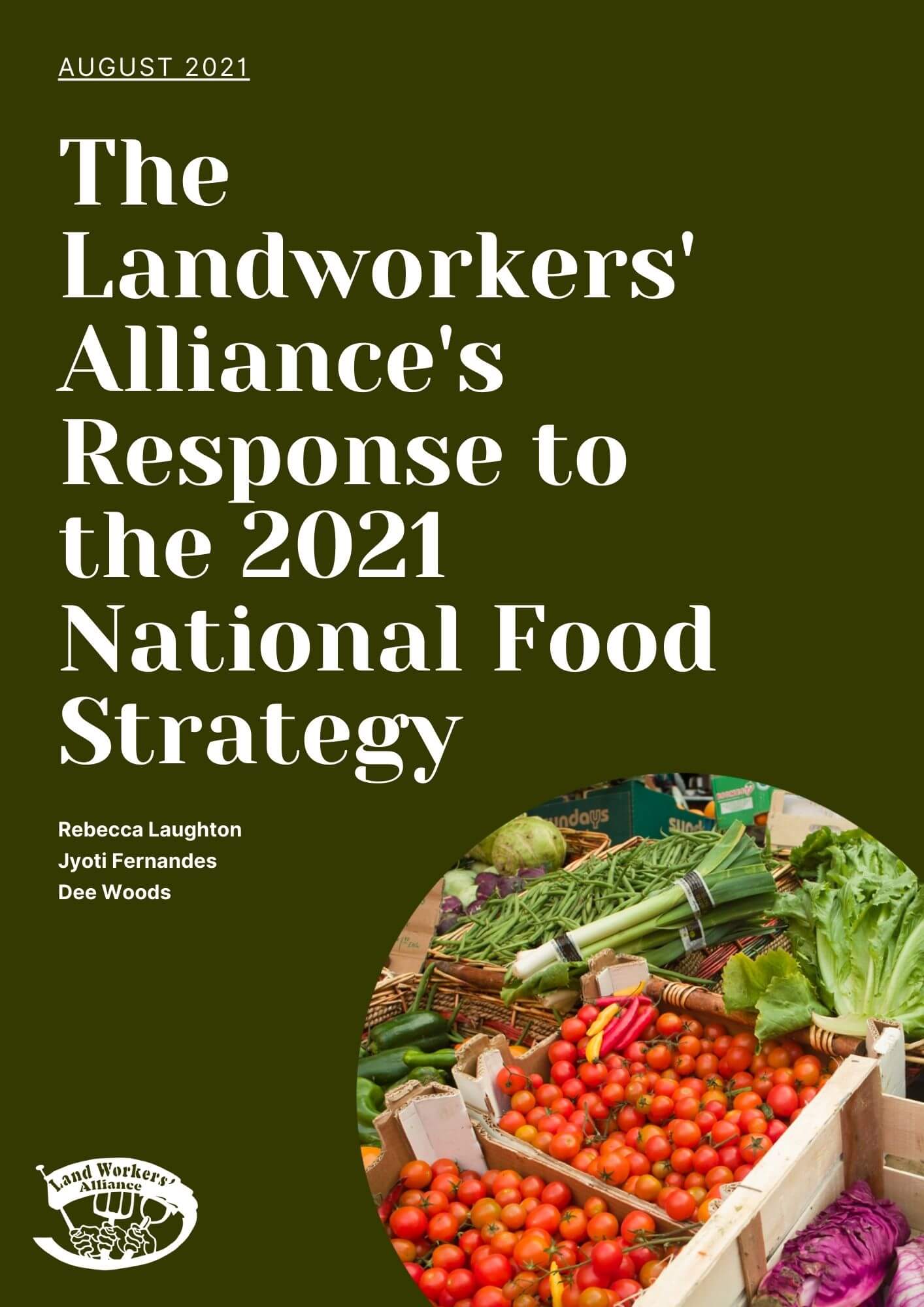The 290 pages of the recently published National Food Strategy is without a doubt an important stepping stone on the pathway to realising food justice, holistic health and environmental sustainability in England. The Landworkers’ Alliance are pleased to see the extent to which Henry Dimbleby and his team have engaged with the many pressing problems of our contemporary food system. There does, however, remain a long way to go to ensure we give enough priority to our localised agroecological food producers in providing healthy affordable food for all.
“We’re happy to see the recommendations for dynamic purchasing schemes and the strengthening of public procurement guidelines to prioritise healthy and sustainable food” comments Rebecca Laughton, Horticulture Campaign Coordinator at the LWA.
National and local governments procure around £2 bn of food every year, the majority of which is eaten in schools, hospitals, care homes and the wider social care sector. “These [schemes] present important opportunities for small-scale food producers who currently struggle to access large contracts.” explains Laughton.
Local food systems are the cornerstones of thriving local economies, and a report by the New Economics Foundation revealed that every £10 spent in a local food outlet is worth approximately £25 to the local economy, whereas every £10 spent in a supermarket only leads to £2.40 being spent in the local area.
The LWA therefore supports the NFS’s call for local authorities to create their own food strategies and a £500 million ‘Challenge Fund’ for innovation to ‘boost locally-led initiatives to improve health and diet’. However, “while grassroots organisations and the voluntary sector are keen to mobilise and create thriving local food systems, they need central government leadership to address the power imbalance in a food system dominated by supermarket competition and public funding to invest in the necessary local infrastructure including abattoirs and processing facilities”, stresses Laughton.

As a union of small-scale farmers and land workers the LWA understands the importance of addressing jobs and livelihoods in our food system, however “the NFS fails to acknowledge the related issues around low farm gate prices, poorly paid jobs and labour shortages in the UK, which are steadily eroding our domestic food production system; especially in the horticulture sector”, explains Laughton.
The UK currently imports 47% of its vegetables and 83% of its fruit, signifying an opportunity to build a dynamic, domestic horticulture sector in the UK to meet everyone’s nutritional requirements. “We have a clear vision of how sustainable domestic fruit and vegetable production could be increased, whilst developing public engagement that would increase public consumption of fresh produce, improve physical and mental health and provide meaningful employment”, outlines Laughton.
The LWA also expresses its disappointment in Dimbleby and his team’s decision not to include an explicit demand for a ‘Right to Food’ to be enshrined in UK law. “We, along with many other campaign groups, will be strongly advocating for Right to Food to be enshrined in law, as a follow-on to the NFS” comments Jyoti Fernandes, Head of Policy and Campaigns at the LWA. “We believe that it is absolutely crucial that this recommendation finds its way into the forthcoming White Paper and Food Bill.”
The UK Government is due to publish a White Paper in the coming months, which will draw from the findings and recommendations of the National Food Strategy.

